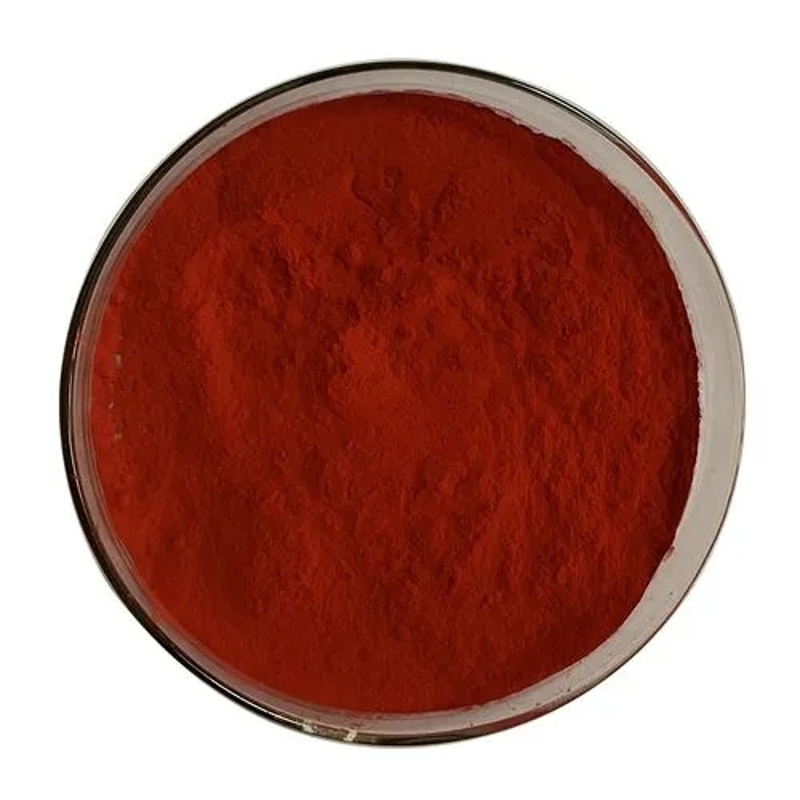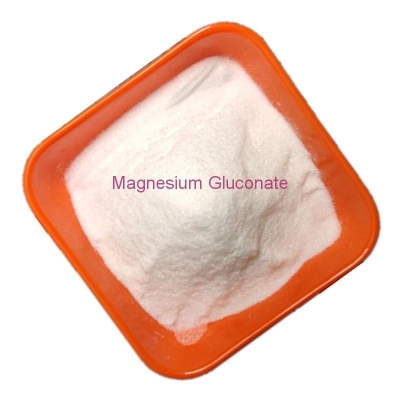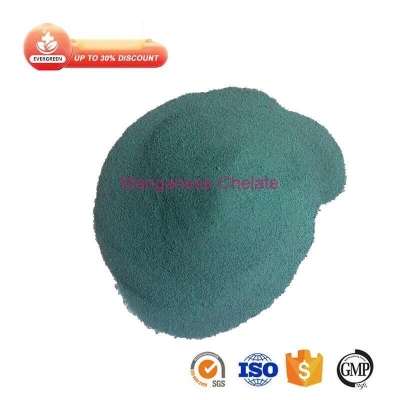-
Categories
-
Pharmaceutical Intermediates
-
Active Pharmaceutical Ingredients
-
Food Additives
- Industrial Coatings
- Agrochemicals
- Dyes and Pigments
- Surfactant
- Flavors and Fragrances
- Chemical Reagents
- Catalyst and Auxiliary
- Natural Products
- Inorganic Chemistry
-
Organic Chemistry
-
Biochemical Engineering
- Analytical Chemistry
- Cosmetic Ingredient
-
Pharmaceutical Intermediates
Promotion
ECHEMI Mall
Wholesale
Weekly Price
Exhibition
News
-
Trade Service
Fresh grapes are attractive in color, refreshing aroma, sweet and sour, and are very popular with people
.
However, red beauty is perishable, and grapes cannot be preserved for a long time
.
In order to enjoy the deliciousness of grapes for a longer time, people make grapes into raisins
.
Some people say that eating a handful of raisins every day can prevent heart disease, because raisins are rich in antioxidants, especially resveratrol
.
is this real?
What is the nutritional value of raisins?
The majority of fresh grapes are still moisture, which is more than 85%
.
Grapes are also rich in potassium, iron, vitamin A, vitamin C, and B vitamins.
They are a good source of vitamins and minerals for people
.
Therefore, fresh grapes are indeed a nutritious and delicious fruit
.
.
Grapes are also rich in potassium, iron, vitamin A, vitamin C, and B vitamins.
They are a good source of vitamins and minerals for people
.
Therefore, fresh grapes are indeed a nutritious and delicious fruit
.
The transformation of grapes into raisins is actually a dehydration process, which can be called "concentrated essence"
.
.
During the concentration process, the minerals in the grapes will not be lost
.
Therefore, after drying, the iron concentration in the raisins is greatly increased
.
Because it is delicious, it is easy to be accepted by people.
It is a good supplementary food for iron supplementation.
Both iron-deficiency anemia patients and women can eat more to help improve hematopoietic function
.
.
Therefore, after drying, the iron concentration in the raisins is greatly increased
.
Because it is delicious, it is easy to be accepted by people.
It is a good supplementary food for iron supplementation.
Both iron-deficiency anemia patients and women can eat more to help improve hematopoietic function
.
However, many vitamins are lost during the dehydration process of raisins
.
During the drying process, the vitamin C and B vitamins in the grapes are more easily destroyed by oxygen and light, and a lot of them will be lost
.
.
During the drying process, the vitamin C and B vitamins in the grapes are more easily destroyed by oxygen and light, and a lot of them will be lost
.
Therefore, raisins can retain the minerals of grapes, but vitamins will inevitably be lost
.
.
Can raisins prevent heart disease?
Compared with the deliciousness of raisins, everyone may look forward to the health benefits of raisins
.
Legend has it that raisins can be anti-oxidant and anti-aging.
This is related to some plant antioxidant substances in grapes.
Among them, resveratrol is the most famous
.
.
Legend has it that raisins can be anti-oxidant and anti-aging.
This is related to some plant antioxidant substances in grapes.
Among them, resveratrol is the most famous
.
In many studies, people have found that it can prevent aging caused by free radicals and lipid peroxidation in the body, promote heart health, and inhibit cell pathology to reduce the probability of cancer
.
So some people start to use their imagination, so can I prevent heart disease by eating raisins? Does this statement make sense?
.
So some people start to use their imagination, so can I prevent heart disease by eating raisins? Does this statement make sense?
Although it has been found in the experiment that resveratrol has certain effects on promoting cardiovascular health, anti-cancer, and anti-aging, in our daily life, the amount of grapes eaten by eating grapes is really limited, which is still different from the amount used in the experiment.
There is a big gap
.
To reach the effective amount in the experiment, you have to eat a "large amount" of raisins, which is difficult to achieve with a normal diet
.
There is a big gap
.
To reach the effective amount in the experiment, you have to eat a "large amount" of raisins, which is difficult to achieve with a normal diet
.
In 2016, French scientists conducted a retrospective analysis of the relationship between resveratrol and cardiovascular diseases.
From the current research and analysis, although some studies in animal experiments and cell experiments did find that resveratrol in grapes It is good for cardiovascular and heart health, but there are few good results found in human clinical trials
.
An important reason is that in cell and animal experiments, we can apply them in extremely high amounts (far more than people's normal diet) to do so, which is also convenient for observing good results
.
However, in daily life, it is difficult for ordinary people to achieve this amount with a normal diet
.
Moreover, resveratrol itself is also very unstable and easily oxidized.
When a person is taken orally after digestion, the amount that can enter the human blood circulation is also very low
.
From the current research and analysis, although some studies in animal experiments and cell experiments did find that resveratrol in grapes It is good for cardiovascular and heart health, but there are few good results found in human clinical trials
.
An important reason is that in cell and animal experiments, we can apply them in extremely high amounts (far more than people's normal diet) to do so, which is also convenient for observing good results
.
However, in daily life, it is difficult for ordinary people to achieve this amount with a normal diet
.
Moreover, resveratrol itself is also very unstable and easily oxidized.
When a person is taken orally after digestion, the amount that can enter the human blood circulation is also very low
.
A study by Johns Hopkins University School of Medicine also pointed out that resveratrol is not directly related to cardiovascular health
.
In a 9-year follow-up survey, they estimated their intake of resveratrol by recording the resveratrol in the urine of volunteers, and found that it was not significantly related to their death, heart disease, and cancer risk.
Sex
.
.
In a 9-year follow-up survey, they estimated their intake of resveratrol by recording the resveratrol in the urine of volunteers, and found that it was not significantly related to their death, heart disease, and cancer risk.
Sex
.
What needs to be reminded is that after the grapes are concentrated to make raisins, the sugar in them has also been greatly concentrated, which is equivalent to a lot of sugar content increase, and the sugar content is as high as 83.
4%
.
A handful of raisins (about 50 grams), more than 40 grams is sugar, if you eat a handful of raisins every day, and do not pay attention to the reduction of other energy, you will be very easy to gain weight.
It is estimated that there is only harm to the heart
.
4%
.
A handful of raisins (about 50 grams), more than 40 grams is sugar, if you eat a handful of raisins every day, and do not pay attention to the reduction of other energy, you will be very easy to gain weight.
It is estimated that there is only harm to the heart
.
Is it okay to eat resveratrol without raisins?
Some people may say that since eating raisins is too troublesome, there are still resveratrol health products extracted from grapes on the market
.
Can I eat it directly?
.
Can I eat it directly?
In fact, resveratrol is not as much as possible
.
Many studies have found that too much resveratrol will promote the growth of cancer cells
.
.
Many studies have found that too much resveratrol will promote the growth of cancer cells
.
For example, a cell study found that low-dose resveratrol can promote cell activation, and when the dose is increased to a certain level, it will inhibit cell activation and even cause cell damage
.
.
In animal experiments, scientists also found that large doses of resveratrol can cause kidney disease and digestive problems in animals
.
.
In human studies, scientists also found that when the daily intake of resveratrol exceeds 0.
5 grams, the human body will have some adverse reactions, and when it exceeds 1 gram, there will be more adverse reactions, including abdominal discomfort and diarrhea
.
There are also cases in clinical studies that have been discontinued due to the discovery that resveratrol may cause kidney problems
.
Therefore, we should not blindly believe in the health effects of resveratrol
.
5 grams, the human body will have some adverse reactions, and when it exceeds 1 gram, there will be more adverse reactions, including abdominal discomfort and diarrhea
.
There are also cases in clinical studies that have been discontinued due to the discovery that resveratrol may cause kidney problems
.
Therefore, we should not blindly believe in the health effects of resveratrol
.
However, under normal circumstances, everyone does not have to worry too much about the safety of resveratrol
.
Generally speaking, people consume very little resveratrol through normal diets.
Because of this, the FDA evaluates the safety of resveratrol as GRAS (that is, generally considered safe), and there is no need to worry too much about eating a small amount of resveratrol
.
.
Generally speaking, people consume very little resveratrol through normal diets.
Because of this, the FDA evaluates the safety of resveratrol as GRAS (that is, generally considered safe), and there is no need to worry too much about eating a small amount of resveratrol
.
Even if you really want to add resveratrol, peanuts, blueberries, cranberries and other foods are also good choices, because these foods all have resveratrol, and these foods are much more cost-effective
.
.
In general: A handful of raisins a day is a good snack, and it is also good for iron supplementation
.
However, whether resveratrol and other antioxidants can really prevent heart disease, there is currently no sufficient evidence, let alone a reason to eat a lot of raisins
.
Moreover, raisins are extremely high in sugar, so eating more is really not a good thing
.
It's April soon
.
.
.
.
However, whether resveratrol and other antioxidants can really prevent heart disease, there is currently no sufficient evidence, let alone a reason to eat a lot of raisins
.
Moreover, raisins are extremely high in sugar, so eating more is really not a good thing
.
It's April soon
.
.
.
Reference materials:
[1]Resveratrol Reverses Functional Chagas Heart Disease in Mice, PLoS Pathog, 2016
[2]Resveratrol in cardiovascular health and disease.
, Ann NY Acad Sci, 2011
, Ann NY Acad Sci, 2011
[3]Resveratrol and cardiovascular health--promising therapeutic or hopeless illusion? Pharmacol Res, 2014
[4]Resveratrol Levels and All-Cause Mortality in Older Community-Dwelling Adults, JAMA Internal Medicine, 2014
[5]Resveratrol and Cardiovascular Diseases, Nutrients, 2016
[6]The impact of resveratrol and hydrogen peroxide on muscle cell plasticity shows a dose-dependent interaction, Scientific Reports, 2015
---------------------------------
Author: Ruan Guangfeng, Director of the Science and Technology Department of the Food and Nutrition Information Exchange Center, a member of the expert group of the China Food Anti-Rumor Alliance, the deputy director of the Guoque.
com Food Research Institute, the signing author of Toutiao, and a columnist
.
For inquiries about article reprinting, please contact the back-end editor of the WeChat official account (ruanguangfeng)
.
com Food Research Institute, the signing author of Toutiao, and a columnist
.
For inquiries about article reprinting, please contact the back-end editor of the WeChat official account (ruanguangfeng)
.







